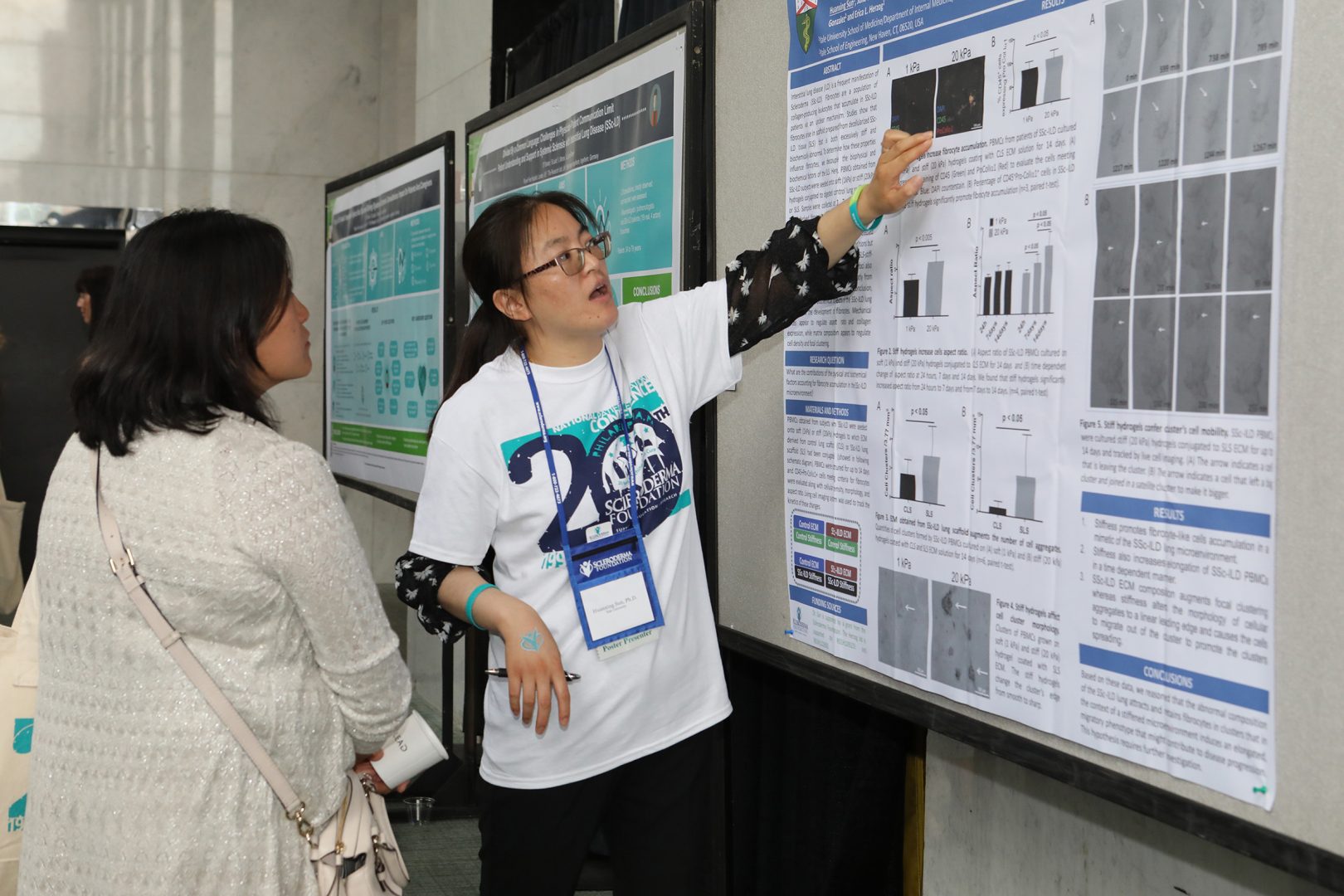Eight new and established researchers receive grant awards
DANVERS, MASSACHUSETTS – On Thursday, Feb. 2, the National Scleroderma Foundation announced its annual grant awards totaling $1.6 million to help identify and develop new treatments and a cure for scleroderma. The grants will be distributed among eight new and established researchers (also known as investigators) who are focused on the disease that affects more than 300,000 Americans. Researcher information and projects noted below.
“We are incredibly grateful to our volunteer leadership who put such time and care into the peer review and grants administration process,” says Foundation CEO Mary Wheatley. “This oversight includes broad representation from our community, including scleroderma experts, scientists and people living with the disease to help ensure we are investing in the most meritorious projects.”
Scleroderma is a rare rheumatic disease that affects connective tissue and the vascular system, producing excessive collagen that causes fibrosis in the skin (localized) or in internal organs (systemic sclerosis). The result can be disfigurement and disability, and for some, it’s life-threatening. There is no known cause or cure. Continued research is critical to provide hope to individuals living with the disease.
For this round of funding, the Foundation received 27 proposals from investigators representing 23 institutions. All funded projects were rated as “high impact” by reviewers, and the success rate for FY 2023 applicants was 30% (compared to 33% last year). The FY 2023 portfolio includes three New Investigator Awards and five Established Investigator Awards, and a good mix between basic and more clinically focused science. The portfolio also includes research focused on the pediatric population. Since its founding, in 1998, the Foundation has committed more than $30 million to advancing medical research in scleroderma.
About the selection process
The Foundation’s peer-reviewed research grants program prioritizes scientific merit and provides funding for both early career and established investigators. The program is administered by the Foundation’s Research Committee. The committee makes funding recommendations to the Board of Directors annually after a rigorous peer review process. Each application is carefully reviewed, critiqued and ranked by a panel of scleroderma experts. Only projects of significant scientific merit are recommended for funding.
After the awards are made, all recipients are required to submit annual reports on their progress. All reports are reviewed by the Foundation’s Research Committee to ensure compliance with programmatic, scientific and fiscal and administrative polices and requirements.
Lear more about the Foundation’s research program at https://www.scleroderma.org/researchers-clinicians-industry/.
Award recipients:
Rafael Contreras, Ph.D., University of Minnesota
Marta Marx Fund for the Eradication of Scleroderma Award – Established Investigator Award
Centromeres, Chromosome Instability, and cGAS-STING Activation in Scleroderma Fibrosis
Roxane Darbousset, Ph.D., Boston Children’s Hospital
The Mark Flapan Award – New Investigator Award
Platelets as Driver of NET Formation in Systemic Sclerosis
Justin Lui, M.D., Boston University
Walter and Marie Coyle Award – New Investigator Award
Cardiac Strain Phenotyping of Systemic Sclerosis-related Pulmonary Hypertension
Natalie Saini, MSc, Ph.D., Medical University of South Carolina
Established Investigator Award
Determining the Somatic Mutation Burden and its Consequences in Scleroderma-lung Disease
Elena Netchiporouk, M.D. M.Sc. FRCPC, The Research Institute of the McGill University Health Centre
Established Investigator Award
Investigating the Impact of the Environment on Systemic Sclerosis in Canada
Peter Morawski, Ph.D., Benaroya Research Institute at Virginia Mason
New Investigator Award
Cutaneous T Cell Dependent Regulation of Scleroderma-associated Fibroblasts
Andreea Bujor, M.D., Ph.D., Boston University
Established Investigator Award
Spatial Frequency Domain Imaging as a New Method to Quantify Skin Changes in Scleroderma
Suzanne Li, M.D., Ph.D., Hackensack University Medical Center
Established Investigator Award
Developing Classification Criteria for Juvenile Systemic Sclerosis: An International Effort to Enable Pediatric-focused Clinical Trials
#


